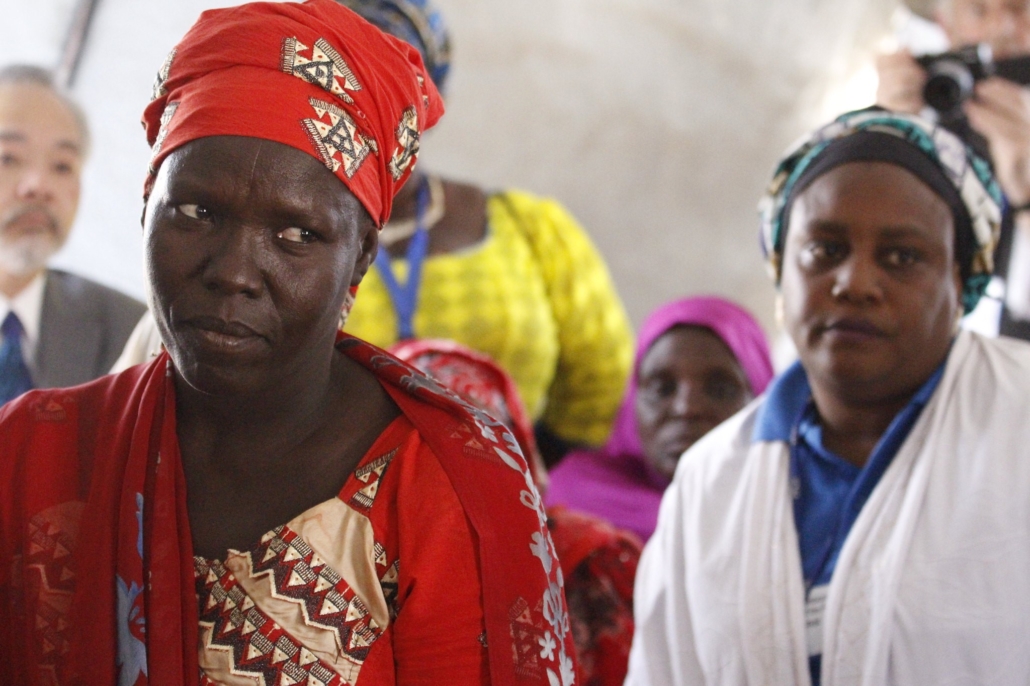The Fight Against Hunger in Nigeria

Nigeria is currently facing a daunting challenge that impacts the lives of millions in the country: hunger. Hunger in Nigeria has been escalating in recent months for various reasons and it has received international attention.
The Scale of the Crisis
Hunger in Nigeria is an immense problem that is currently putting millions at risk in the country. Between the three northeastern states of Borno, Adamawa and Yobe, almost 4.5 million people are now at risk of hunger. Of that 4.5 million, more than 700,000 are at imminent risk of starving to death.
Economics and Food
The COVID-19 pandemic has been a critical contributing factor in the ongoing rise in hunger in Nigeria. Unemployment has skyrocketed in the country, as one-third of the population does not have a job. Additionally, 70% of Nigerians have lost at least one form of income because of the pandemic.
Food inflation has also skyrocketed, worsening the state of hunger. Food inflation reached a 15-year high in 2021, rising to 22.95% in March. Import restrictions on rice and rising fuel costs have both contributed to this inflation.
Overall inflation and poverty levels have been on the rise, further compounding the hunger crisis. Inflation in Nigeria is the highest in the region, and the World Bank predicts the 2021 Nigerian inflation to be 16.5%. The inflation prediction for the sub-Saharan Africa region, excluding Nigeria, is only 5.9%. In the past year, food price inflation alone has accounted for 70% of Nigeria’s inflation.
The economic fallout of the pandemic could put more than 11 million Nigerians in poverty by 2022. The effects of the pandemic created a dangerous mix of unemployment, increased poverty, increased overall inflation, increased food inflation and widespread loss of income.
Conflict and Hunger
Conflict in Nigeria has contributed to the current hunger crisis. The impact of conflict in Nigeria is especially apparent with food inflation. Food costs have risen due to conflict between farmers and herders in the agricultural sector, as well as the ongoing insurgency by the Boko Haram terrorist organization.
Further, the ongoing conflict has made the state of hunger in Nigeria even worse by displacing many Nigerians. The states of Borno, Adamawa and Yobe, which are at high risk of widespread hunger, have also seen mass displacement due to conflict. In recent years, 8.7 million people have experienced displacement in these states due to the violence that “non-state armed groups” instigated
These large numbers of displaced persons often move into host communities that are ill-suited to the task. Such communities end up under the tremendous strain, as they have insufficient supplies, including food, to serve their newly enlarged populations.
Armed conflicts that prevent humanitarian aid from reaching those who need it is complicating the addressing of this crisis. Estimates indicate that aid cannot reach more than 800,000 people who live in areas that non-state armed groups control.
Aid Efforts
International organizations are trying to address hunger in Nigeria. The U.N. and other international organizations have continued to provide food assistance in Nigeria thanks to a process called localization. This process involves international organizations partnering with local NGOs to assist those in need, which enables local people, who might understand more, to help with local problems.
This coalition of organizations has provided support to camps for internally displaced persons. For example, the World Food Programme (WFP) has given starving Nigerians money to purchase food. However, this assistance has had a limited scope, as some camps only offer food support to pregnant and breastfeeding mothers. All of these efforts to assist have not proven to be enough to address the crisis.
Looking Ahead
Much work remains to address the current state of hunger in Nigeria. The U.N.-led coalition of organizations is attempting to reach more than 6 million Nigerians with humanitarian aid. However, this effort has received limited funding as it has only garnered 20% of the necessary funds.
To address this crisis, a significant amount of funding is necessary. The U.N. is calling for $250 million in food aid to meet Nigeria’s severe hunger situation.
The situation of hunger in Nigeria is in a state of crisis. Millions of Nigerians are at high risk of becoming food insecure, and hundreds of thousands are at risk of starving to death. Conflict, widespread displacement and high food inflation all impact the hunger situation in Nigeria. While a coalition of organizations provides as much aid as possible to those at risk, these organizations need more support from the international community.
– Coulter Layden
Photo: Flickr
